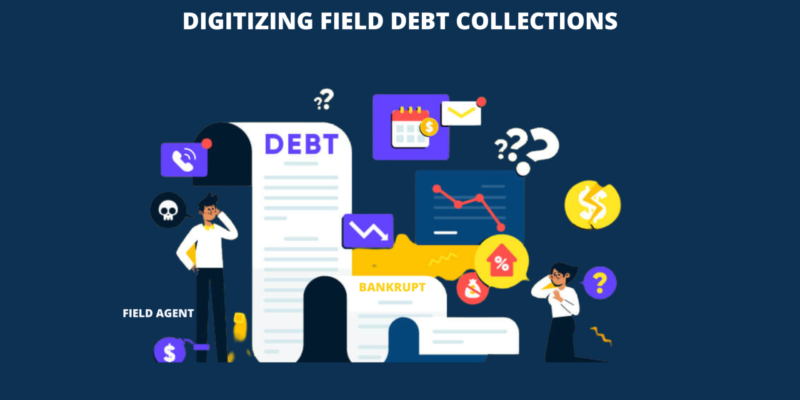Effective debt collection is crucial for maintaining the financial health of any business. It involves strategic planning, communication, and a deep understanding of both the debtor and the owed amount. For an accounts receivable (A/R) collector, productivity is defined by the ability to recover outstanding debts efficiently and professionally.
However, common productivity setbacks such as lack of preparation, inadequate information, and ineffective communication can hinder success. Debt collection calls are particularly challenging but play a significant role in ensuring timely payments and financial stability. This article will explore strategies on how to collect debts effectively, providing insights and actionable tips to enhance debt collection success.
Preparation and Planning
Preparation is key in the debt collection process. A/R collectors should be ready to handle common customer excuses with a compiled list of effective rebuttals. Anticipating objections and having prepared responses can help steer the conversation towards a positive resolution.
- Arming Oneself with the Facts: Knowing the exact amount owed, the terms of sale, and details of the services or products purchased is essential. Collectors should be well-informed to address any questions or disputes that may arise during the call. This knowledge not only builds credibility but also facilitates a more effective debt collection process.
- Knowing the Customer Well and Understanding their Payment History: Before making initial contact, it is crucial to understand the customer’s payment history and behavior. This information helps in tailoring the communication strategy and anticipating potential challenges. By knowing the customer well, collectors can personalize their approach, making it more likely to achieve successful outcomes.
- Having Copies of All Relevant Documents Before Reaching Out: Having copies of all relevant documents, such as invoices, contracts, and communication records, is vital before reaching out to the debtor. These documents serve as evidence and support during the conversation, helping to resolve disputes quickly and efficiently. Ensuring all paperwork is readily accessible is a fundamental part of how to collect debts effectively.
Effective Communication Strategies
- Maintaining a Positive Outlook: A positive outlook can significantly impact the outcome of a debt collection call. Collectors should approach each call with confidence and optimism, as their mental state can influence the debtor’s responsiveness. Staying calm and composed, even in difficult conversations, is essential for maintaining professionalism and achieving favorable results.
- Speaking Professionally and Authoritatively: Effective communication involves speaking professionally and authoritatively. Using a clear, concise, and respectful tone can influence the debtor’s responsiveness and willingness to cooperate. Demonstrating authority without being confrontational helps in establishing control over the conversation and guiding it towards a resolution.
- Tailoring Communication Strategies to Customer Preferences: Tailoring communication strategies to customer preferences is a key aspect of effective debt collection. Collectors should consider the debtor’s preferred contact methods and times, ensuring that they are reaching out in the most convenient and effective manner. Keeping secondary contact information can also be useful in maintaining consistent communication.
- Utilizing an Omnichannel Approach for Consistent Contact: An omnichannel approach to debt collection involves using multiple communication channels such as emails, phone calls, and automated texts. This strategy ensures that collectors can maintain consistent contact with the debtor, increasing the chances of successful debt recovery. By leveraging different channels, collectors can adapt to the debtor’s preferences and enhance the effectiveness of their efforts.
Negotiation and Settlement
Effective negotiation in debt collection requires the ability to control the conversation and secure a commitment from the customer. Collectors should steer discussions toward solutions, asking direct questions that require specific answers about payment plans and timelines. By maintaining control of the conversation, collectors can guide debtors towards a resolution, making it clear that settling the debt is a priority.
Offering Flexible Payment Options
Flexibility is crucial in the debt collection process. Offering various payment options, such as installments or adjusted payment schedules, can help debtors manage their obligations more effectively. By working out mutually beneficial arrangements, collectors can increase the likelihood of recovering the debt while also accommodating the debtor’s financial situation, creating a win-win scenario.
Documentation and Record-Keeping
Thorough documentation is vital in the debt collection process. Collectors should document each collection attempt and take detailed notes during conversations with debtors. This practice ensures that all interactions are recorded accurately, providing a clear history of efforts made and responses received, which is essential for ongoing and future collection activities.
Using Software or an Integrated AR Management System to Keep Track of Communications
Leveraging software or an integrated accounts receivable (AR) management system can significantly enhance the efficiency of record-keeping. These tools help track communications, schedule follow-ups, and manage accounts systematically. By using technology, collectors can streamline their workflow, reduce manual errors, and ensure that no account falls through the cracks.
Importance of Detailed Records for Future References and Legal Compliance
Maintaining detailed records is not only crucial for tracking progress but also for legal compliance. Accurate and comprehensive documentation can protect the business in case of disputes or legal challenges. Detailed records provide a reliable reference for all actions taken, ensuring transparency and accountability throughout the debt collection process.
Adapting to Customer Needs
Recognizing that every customer is unique is fundamental to effective debt collection. Collectors should be flexible with their strategies, adapting their approach based on the specific circumstances of each debtor. This personalized approach can increase the likelihood of successful debt recovery by addressing the individual needs and preferences of each customer.
- Spending More Time on Delinquent Customers and Prioritizing Accounts: Allocating more time and resources to delinquent customers is a strategic way to improve collection outcomes. Prioritizing accounts based on their likelihood to pay allows collectors to focus their efforts where they are most needed. By identifying high-risk accounts and dedicating appropriate resources, collectors can increase their chances of recovering debts from more challenging cases.
- Customizing Recovery Strategies to Meet Unique Circumstances of Borrowers: Customizing recovery strategies to meet the unique circumstances of borrowers is essential for effective debt collection. Collectors should consider factors such as the debtor’s financial situation, communication preferences, and payment history when developing their approach. Tailoring strategies to fit individual cases ensures that collectors can address specific challenges and work towards mutually beneficial solutions.
By implementing these tailored strategies, collectors can improve their ability to collect debts effectively, fostering better relationships with debtors and enhancing overall collection success.
Utilizing Digital Tools and Automation
- Benefits of Handling Payments Online: Handling payments online offers numerous benefits, including convenience, speed, and security. Online payment processing services streamline the debt collection process, making it easier for debtors to make payments anytime and anywhere. Recommendations for reliable payment processing services include PayPal, Stripe, and Square, which offer secure, user-friendly platforms for managing transactions. By integrating these services, businesses can enhance their efficiency and provide a seamless payment experience for debtors.
- Advantages of Using an Integrated AR Management System: An integrated accounts receivable (AR) management system can significantly improve the efficiency of the debt collection process. These systems centralize all debtor information, automate routine tasks such as invoice generation and reminders, and provide real-time insights into account statuses. This not only saves time but also reduces the risk of errors, ensuring that collections are managed consistently and effectively. Tools like QuickBooks, Xero, and FreshBooks are excellent options for businesses seeking to optimize their AR processes.
- Exploring Digital Communication Tools: Digital communication tools, such as automated emails, text messaging, and chatbots, enhance the effectiveness of debt recovery efforts. These tools allow collectors to maintain consistent and timely contact with debtors, ensuring that payment reminders and updates are delivered promptly. Additionally, platforms like WhatsApp, Slack, and Microsoft Teams can facilitate real-time communication, making it easier to resolve issues and answer debtor inquiries quickly. Utilizing these digital tools helps build trust and keeps the debt collection process transparent and efficient.
Partnering with a Collection Agency
Hiring a professional debt collection agency can be a strategic move when internal collection efforts are insufficient or when dealing with particularly challenging debts. Collection agencies have the expertise, resources, and legal knowledge to handle complex debt recovery cases effectively. The benefits of partnering with a collection agency include increased recovery rates, reduced workload for your team, and the ability to focus on core business activities while the agency handles the collections.
Criteria for Selecting a Collection Agency Partner
Selecting the right collection agency is crucial for successful debt recovery. Key criteria to consider include:
- Performance: Assess the agency’s track record and success rates in recovering debts.
- Compliance: Ensure the agency adheres to all relevant laws and regulations, including the Fair Debt Collection Practices Act (FDCPA).
- Compassion: Choose an agency that values ethical practices and treats debtors with respect and empathy, as this can positively impact the debtor’s willingness to pay.
Advantages of Digital Agencies Over Traditional Agencies in Debt Collection
Digital agencies offer several advantages over traditional debt collection agencies. They leverage technology to automate and streamline the debt collection process, leading to faster and more efficient recoveries. Digital agencies can also provide real-time tracking and reporting, giving you greater visibility into the status of your collections. Additionally, they often utilize digital communication tools to engage with debtors, which can enhance the debtor experience and improve recovery outcomes.
Conclusion
Effective debt collection strategies are vital for maintaining business sustainability. By incorporating preparation and planning, employing effective communication techniques, utilizing digital tools, and considering professional agency partnerships, businesses can significantly improve their debt recovery outcomes. Continuous improvement and learning are essential for staying effective in debt collection. Regularly updating your strategies, embracing new technologies, and adapting to debtor preferences can help you stay ahead in the evolving landscape of debt recovery.Spire Recovery Solutions encourage businesses to implement the techniques outlined in this article to enhance their debt collection processes. From leveraging digital tools to maintaining empathy and professionalism in communications, these strategies can lead to more successful and sustainable debt recovery efforts.






